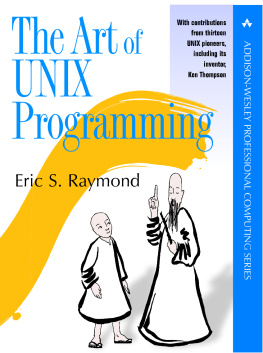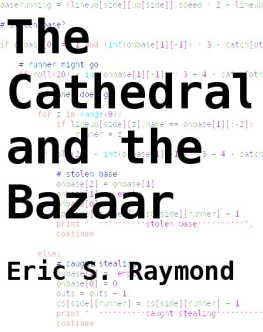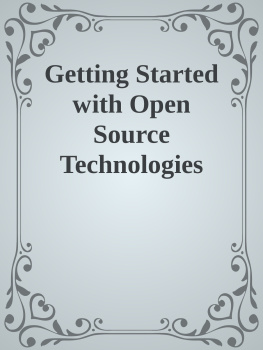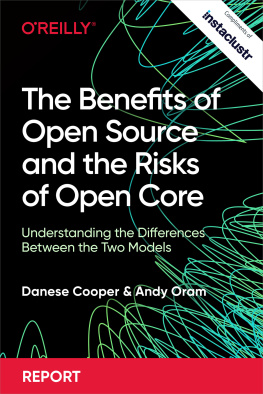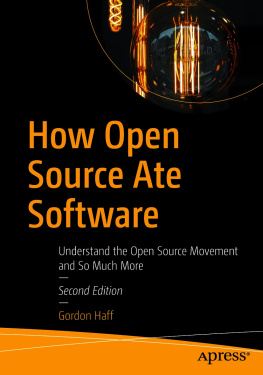To Cathy R., and Alice C., and Maya T.
Foreword
Freedom is not an abstract concept in business.
The success of any industry is almost directly related to thedegree of freedom the suppliers and the customers of that industryenjoy. Just compare the innovation in the U.S. telephone businesssince AT&T lost its monopoly control over American consumers withthe previously slow pace of innovation when those customers had nofreedom to choose.
The world's best example of the benefits of freedom in businessis a comparison of the computer hardware business and the computersoftware business. In computer hardware, where freedom reigns for bothsuppliers and consumers alike on a global scale, the industrygenerates the fastest innovation in product and customer value theworld has ever seen. In the computer software industry, on the otherhand, change is measured in decades. The office suite, the 1980skiller application, wasn't challenged until the 1990s with theintroduction of the web browser and server.
Open-source software brings to the computer software industryeven greater freedom than the hardware manufacturers and consumershave enjoyed.
Computer languages are called languages because they are justthat. They enable the educated members of our society (in this case,programmers) to build and communicate ideas that benefit the othermembers of our society, including other programmers. Legallyrestricting access to knowledge of the infrastructure that our societyincreasingly relies on (via the proprietary binary-only softwarelicenses our industry historically has used) results in less freedomand slower innovation.
Open source represents some revolutionary concepts being thrownat an industry that thought it had all of its fundamental structuresworked out. It gives customers control over the technologies they use,instead of enabling the vendors to control their customers throughrestricting access to the code behind the technologies. Supplyingopen-source tools to the market will require new business models. Butby delivering unique benefits to the market, those companies thatdevelop the business models will be very successful competing withcompanies that attempt to retain control over their customers.
There have always been two things that would be required ifopen-source software was to materially change the world: one was foropen-source software to become widely used and the other was that thebenefits this software development model supplied to its users had tobe communicated and understood.
This is Eric Raymond's great contribution to the success of theopen-source software revolution, to the adoption of Linux-basedoperating systems, and to the success of open-source users and thecompanies that supply them. Eric's ability to explain clearly,effectively, and accurately the benefits of this revolutionarysoftware development model has been central to the success of thisrevolution.
Bob Young, Chairman and CEO, Red Hat,Inc.
Preface: Why You Should Care
The book in your hands is about the behavior and culture ofcomputer hackers. It collects a series of essays originally meantfor programmers and technical managers. The obvious (and entirelyfair) question for you, the potential reader, to ask is: Why shouldI care?
The most obvious answer to this question is that computer software isan increasingly critical factor in the world economy and in thestrategic calculations of businesses. That you have opened this bookat all means you are almost certainly familiar with many of today'struisms about the information economy, the digital age, and the wiredworld; I will not rehearse them here. I will simply point out thatany significant advance in our understanding of how to buildbetter-quality, more reliable software has tremendous implicationsthat are growing more tremendous by the day.
The essays in this book did not invent such a fundamental advance, butthey do describe one: open-source software, the process ofsystematically harnessing open development and decentralized peerreview to lower costs and improve software quality. Open-sourcesoftware is not a new idea (its traditions go back to the beginningsof the Internet thirty years ago) but only recently have technical and market forces converged to draw it out of a niche role. Todaythe open-source movement is bidding strongly to define the computinginfrastructure of the next century. For anyone who relies oncomputers, that makes it an important thing to understand.
I just referred to the open-source movement .That hints at other and perhaps more ultimately interesting reasonsfor the reader to care. The idea of open source has been pursued,realized, and cherished over those thirty years by a vigorous tribe ofpartisans native to the Internet. These are the people who proudlycall themselves "hackers"not as the term is nowabused by journalists to mean a computer criminal, but in its true andoriginal sense of an enthusiast, an artist, a tinkerer, a problemsolver, an expert.
The tribe of hackers, after decades spent in obscurity strugglingagainst hard technical problems and the far greater weight ofmainstream indifference and dismissal, has recently begun to come intoits own. They built the Internet; they built Unix; they built theWorld Wide Web; they're building Linux and open-source softwaretoday; and, following the great Internet explosion of the mid-1990s,the rest of the world is finally figuring out that it should have beenpaying more attention to them all along.
The hacker culture and its successes pose by example some fundamentalquestions about human motivation, the organization of work, the futureof professionalism, and the shape of the firmand about how all ofthese things will change and evolve in the information-richpost-scarcity economies of the 21st century and beyond. The hackerculture also, arguably, prefigures some profound changes in the wayhumans will relate to and reshape their economic surroundings. Thisshould make what we know about the hacker culture of interest to anyoneelse who will have to live and work in the future.
This book is a collection of essays that were originallypublished on the Internet; isoriginally from 1992 but since regularly updated and revised, and theothers were written between February 1997 and May 1999. They weresomewhat revised and expanded for the first edition in October 1999,and updated again for this second edition of January 2001, but noreally concerted attempt has been made to remove technicalia or makethem `more accessible' (e.g. dumb them down) for a general audience. Ithink it more respectful to puzzle and challenge an audience than tobore and insult it. If you have difficulty with particular technicalor historical points or the odd computer acronym, feel free to skipahead; the whole does tell a story, and you may find that what youlearn later makes sense of what puzzled you earlier.
The reader should also understand that these essays are evolvingdocuments, into which I periodically merge the distilled results offeedback from people who write to comment on or correct them. While Ialone remain responsible for any errors in this book, it hasbenefitted from a peer-review process very like that which itdescribes for software, and incorporates contributions from people toonumerous to list here. The versions printed here are not fixed orfinal forms; rather, they should be considered reports from acontinuing inquiry in which many members of the culture they describeare active participants.


